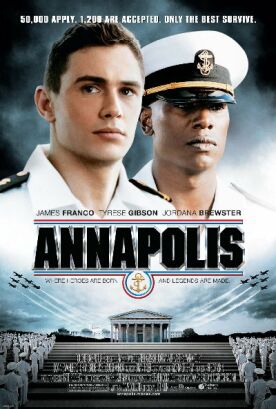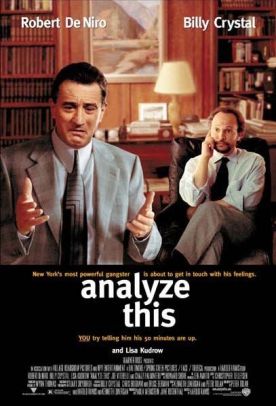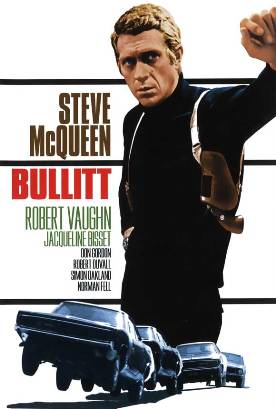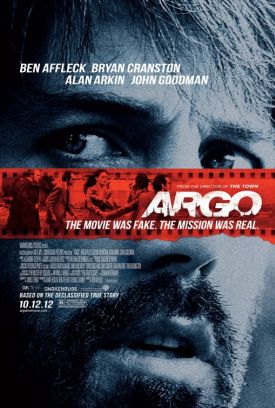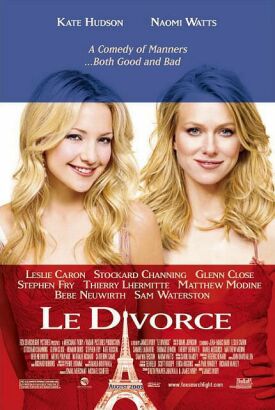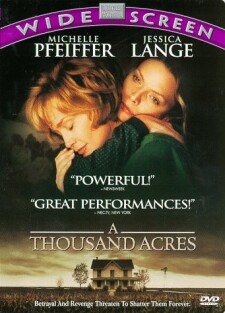Annapolis
Here’s something I’ll bet that you didn’t know but that Justin Lin’s Annapolis will tell you. The point of attending the United States Naval Academy — at least if you are a blue collar kid from the wrong side of the river (not the Severn but the Delaware, by the way) and employed in the local ship-building industry — is to find yourself a pretty midshipwoman, get her to teach you all she knows about boxing and then climb into the ring with the Academy’s heavyweight champ so as to win you a place in the élite company of midshipmen. Oh, and by the way, you may from time to time have to put up with some sort of educational activity in the intervals between boxing matches.
Welcome, once again, to Hollywood’s bizarro world. Just think of all it has taught us that we wouldn’t otherwise know — for example, that the Vietnam War made the impact that it did on American POWs because they were forced to play Russian roulette with their captors or that Pearl Harbor, nasty as it was for the American armed forces, at least had the virtue of sparing Kate Beckinsale the embarrassment of having two boyfriends at once. More recently, we have learned from the movies that the English settlement of North America was chiefly notable because it coincided with Captain John Smith’s mid-life crisis and that the man charged with avenging the terrorist atrocity at Munich in 1972 retired from the Israeli secret service to take up moralizing.
It’s all a matter of proportion, isn’t it? And the fact that Hollywood so regularly gets the proportions wrong tells you something about the culture that I hope I am not alone in finding disturbing. Back in the 1980s, the advertising folks in charge of Army recruiting came up with the supremely silly slogan, perhaps pitched at the teenage audience for superhero comic books, “An Army of One.” I can’t remember whether it preceded or followed the almost equally silly one inviting would-be soldiers to “Be all You Can Be.” They still use both, I believe, which must mean that there is a certain potency, a certain resonance to the idea of reconciling the philosophical individualism of the American teenager with traditional ideas of military honor.
There is also probably some resonance to the ideas of perpetual motion, thinking and growing rich and squaring the circle.
In theory, the former ship-builder and amateur boxer Jake Huard (James Franco) goes to the Naval Academy to serve his country, but as that ambition appears to have zero cinematical interest, Mr Lin and his screenwriter, David Collard, don’t bother to show him serving his country but only boxing, and displaying his determination to be all he can be as a boxer. Perhaps because most of us have seen a boxing movie before — and because there is a certain sameness to boxing movies — the usual formula is varied by the elimination of the crusty old trainer and his replacement by the pretty and shyly devoted girlfriend (Jordana Brewster). After all, Annapolis and the Navy itself have already been co-ed for a generation.
Anyway, Mr Franco is just as pretty. Fresh from his soulful Tristan, he is here a soulful Jake who is suffering from the deprived, working-class background in which he grew up. He tells us that he has been told all his life — and his hypercritical dad (Brian Goodman) is there to prove it — that he’s not good enough. Piffle! Does Hollywood think we can’t recognize a golden boy when we see one? Here’s a guy who can’t even begin to persuade us that he hasn’t been told all his life just the opposite. But remember, it’s Hollywood bizarro world, where Naval Academy plebes say things like: “I know we’re four guys in a shower, but can we keep the testosterone to a minimum?”
It should be obvious by now that any resemblance to an actual institution in Maryland is purely coincidental.
Discover more from James Bowman
Subscribe to get the latest posts to your email.

